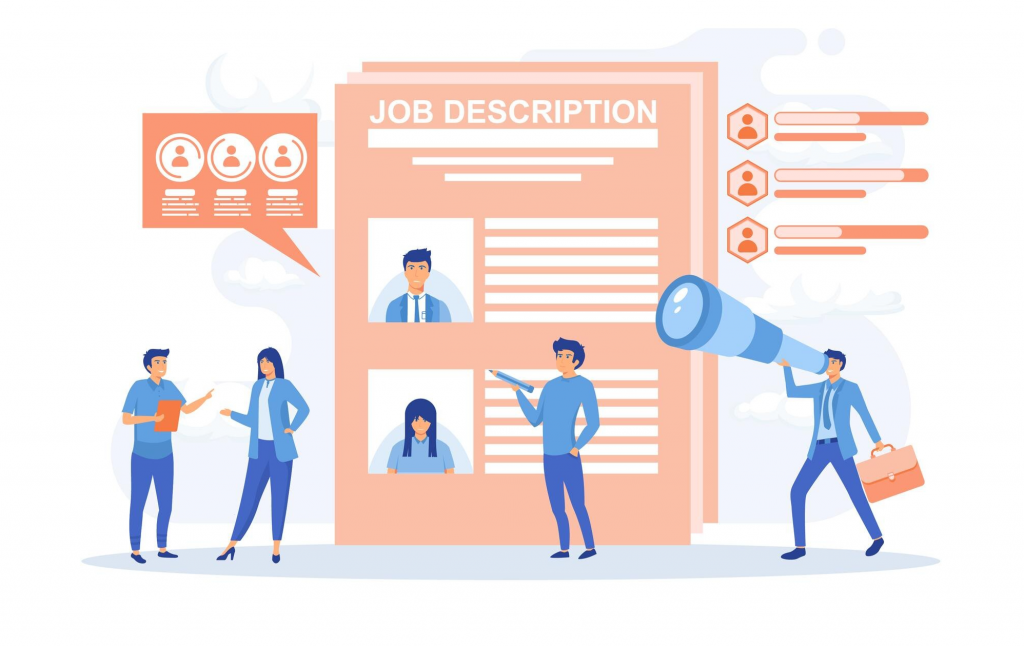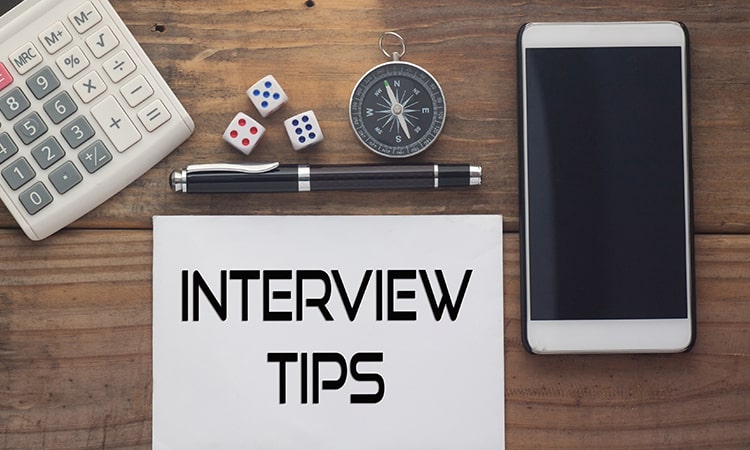Introduction
Preparing for a job interview can feel like a daunting task. There’s excitement, yes, but also the pressure to make a lasting impression in just a short time. However, with the right mindset and strategy, you can turn this challenge into an opportunity to truly shine. This guide walks you through 20 essential interview tips, covering everything you need before, during, and after the big day to help you feel prepared, confident, and ready to land that dream job.
Before the Interview
Research the Company Thoroughly
Knowing the company inside and out helps you show genuine interest and craft responses that resonate. Start with the basics—visit their website, read their mission statement, and browse recent news to understand the company’s goals and values. But don’t stop there. Dive deeper by exploring any recent projects or industry awards they’ve received.
Researching thoroughly allows you to find these unique angles, showing you’re not just looking for a job but want to be a valuable part of their journey.

Example: “When I saw that [Company] recently invested in renewable energy initiatives, I knew I could share my experience on a similar project.”
Practice Common Interview Questions
Let’s face it, interview nerves are real. Practicing questions like “Tell me about yourself” and “What are your strengths and weaknesses?” helps you stay calm and composed. Saying answers out loud—preferably with a friend or in front of a mirror—can work wonders. Not only does it make your answers feel more natural, but it also highlights any awkward pauses or habits you may have.

Don’t underestimate the power of preparation here; the more you rehearse, the more confident and comfortable you’ll feel on the big day.
Understand the Job Description in Detail

Analyzing the job description line by line can reveal hidden gems about what the employer is looking for. Look beyond the main responsibilities and identify key skills they prioritize. Are they looking for someone detail-oriented? Great at teamwork? Then, think about past roles where you demonstrated those exact qualities.
Scenario: “For a role that listed leadership, I recalled a project where I coordinated a cross-departmental team, successfully meeting our goals on time and within budget.”
Prepare Insightful Questions for the Interviewer
Interviewers often ask, “Do you have any questions for us?” Take this as your chance to shine. Asking thoughtful questions shows you’re truly invested in the role and the company. Try questions like, “How does the team collaborate on projects?” or “What are some challenges this role might face in the first year?”
These types of questions demonstrate that you’re already thinking about how you can contribute and succeed.
Conduct Mock Interviews for Realistic Practice
If nerves are a big concern, consider doing a full mock interview. Platforms like virtual mock interview services are great, but practicing with a friend or mentor can be just as valuable. The idea is to simulate the real thing so you can practice your answers, body language, and confidence in a setting that feels a bit more formal than your living room. You might even learn a few surprising things about yourself and your answers!
Dress for Success, Matching the Company’s Culture
First impressions count, and one must be wary of what to wear to an interview. Research the company’s culture—look at pictures of employees, or consider what’s typical in that industry. For example, a corporate setting might call for business formals, while a tech startup might lean more towards business casuals.

Tip: “If interviewing for a tech startup, business casual might be a better fit than formal corporate wear. A clean, polished look will always work in your favor.”
Organize Essential Materials
Before the big day, get everything you need in one place. Have multiple copies of your resume, a list of references, and, if applicable, a portfolio of your work. Even if it feels redundant, being prepared with these items shows you’re organized and helps you stay calm, knowing you’ve covered all your bases.
During the Interview
Arrive Early and Gather Your Thoughts
Plan to arrive 10-15 minutes early. Give yourself a few minutes to calm down, breathe, and mentally prepare. This small window lets you observe the office vibe and subtly gives you insights into the company culture. Plus, punctuality speaks volumes about your reliability.
Use Positive Body Language
Your body language speaks before you even say a word. Smile, make eye contact, offer a firm handshake, and sit up straight. Practicing these behaviors beforehand can help you exude confidence naturally, even if you’re feeling nervous. This is especially crucial for first impressions, as it sets the tone for the rest of the interview.
Listen Carefully Before Responding
You don’t have to jump straight into an answer. Take a moment to absorb the question, and if you need clarification, it’s completely okay to ask. Active listening shows you’re engaged and helps you provide relevant answers rather than rambling.
Answer Clearly Using the STAR Method
When tackling behavioral questions, the STAR method (Situation, Task, Action, Result) provides a clear structure that interviewers love. STAR helps you avoid vague answers, ensuring you present a strong case for your skills.

Example: “In my last role, I managed a project to reduce our team’s turnaround time by 15% (Situation). I identified a bottleneck (Task), restructured our workflow (Action), and our productivity increased by 20% (Result).”
Demonstrate Enthusiasm and Confidence
An interview isn’t just about showing you’re qualified; it’s about showing you’re excited about the role and the company. Conveying genuine enthusiasm goes a long way in making a lasting impression. Don’t hold back from expressing why this role excites you or how the company’s values align with your own.
Keep Your Responses Relevant and Concise
There’s no need to elaborate beyond the question asked. Stay on point, and if you can, end on a high note with a brief summary or statement that reinforces your experience.
Highlight Skills with Quantifiable Achievements
Numbers are powerful. Instead of saying, “I improved client satisfaction,” say, “I improved client satisfaction scores by 20%.” Quantifiable achievements make your contributions concrete and memorable, painting a picture of the impact you can bring.
Adapt to the Interview Format and Environment
Interview formats vary, and each requires a slightly different approach. In a virtual interview, for example, make sure your background is clean and you’re positioned in good lighting. In-person? Make eye contact with everyone in the room. Adaptability shows your versatility and professionalism.
After the Interview
Send a Thank-You Note to Each Interviewer
A thank-you note isn’t just courteous—it’s a chance to leave a final impression. Send a personalized thank-you email within 24 hours. Reference specific points from the conversation to show attentiveness. For example, if the interviewer mentioned a challenge the team is currently facing, express your excitement to tackle such issues.

Reflect on Your Performance Honestly
Every interview, whether it went well or not, is an opportunity to learn. Think about what went smoothly and where you could improve. This habit will make you a stronger candidate over time, helping you approach future interviews with more insight and self-awareness.
Follow Up Politely and Professionally
If the interviewer provided a timeline, respect it. However, a polite follow-up email can reaffirm your interest if the timeframe has passed. This follow-up should be professional and concise, letting the interviewer know you’re still enthusiastic about the role.
Stay Positive and Motivated
Rejection can be tough, but every “no” brings you closer to a “yes.” Stay positive, keep applying, and remember each interview refines your skills and gets you closer to the right fit. Persistence is key, and it’s okay to take a day to recharge if you’re feeling discouraged.
Seek Feedback When Possible
Not all companies offer feedback, but when they do, it’s invaluable. Constructive criticism can highlight areas where you can improve, whether it’s about communication skills or technical knowledge. Consider these insights as a guide to help you grow and approach the next interview even better prepared.
Conclusion
Job interviews may feel like a high-stakes performance, but remember that they’re also a chance to showcase who you are beyond your resume. By preparing thoroughly, communicating clearly, and following up professionally, you’ll leave a positive impression that can make all the difference. Remember, interviews are just as much about finding the right fit for you as for the employer. Embrace the process as a learning journey; each step will bring you closer to the opportunity you’ve been waiting for.
FAQs
Q1. What should I do to prepare before an interview?
Ans: Preparing for an interview involves researching the company, practicing common interview questions, understanding the job description, and organizing your materials. Also, consider conducting mock interviews and planning questions to ask the interviewer.
Q2. How can I calm my nerves during an interview?
Ans: Arriving early, using positive body language, and actively listening can help you stay calm. Taking a deep breath before answering and focusing on one question at a time also reduces anxiety.
Q3. What questions should I ask the interviewer?
Ans: Some good questions include asking about the company culture, team collaboration, success metrics for the role, and opportunities for professional growth. These questions demonstrate interest and engagement.
Q4. How important is follow-up after an interview?
Ans: Following up is very important. Sending a thank-you note within 24 hours shows appreciation and professionalism. A polite follow-up email, if you haven’t heard back within the specified timeframe, reinforces your interest in the role.
Q5. What is the STAR method, and how does it help in interviews?
Ans: The STAR method (Situation, Task, Action, Result) is a technique to structure answers to behavioral questions. It helps you provide clear, concise responses, making it easier for interviewers to understand your achievements and problem-solving skills.




